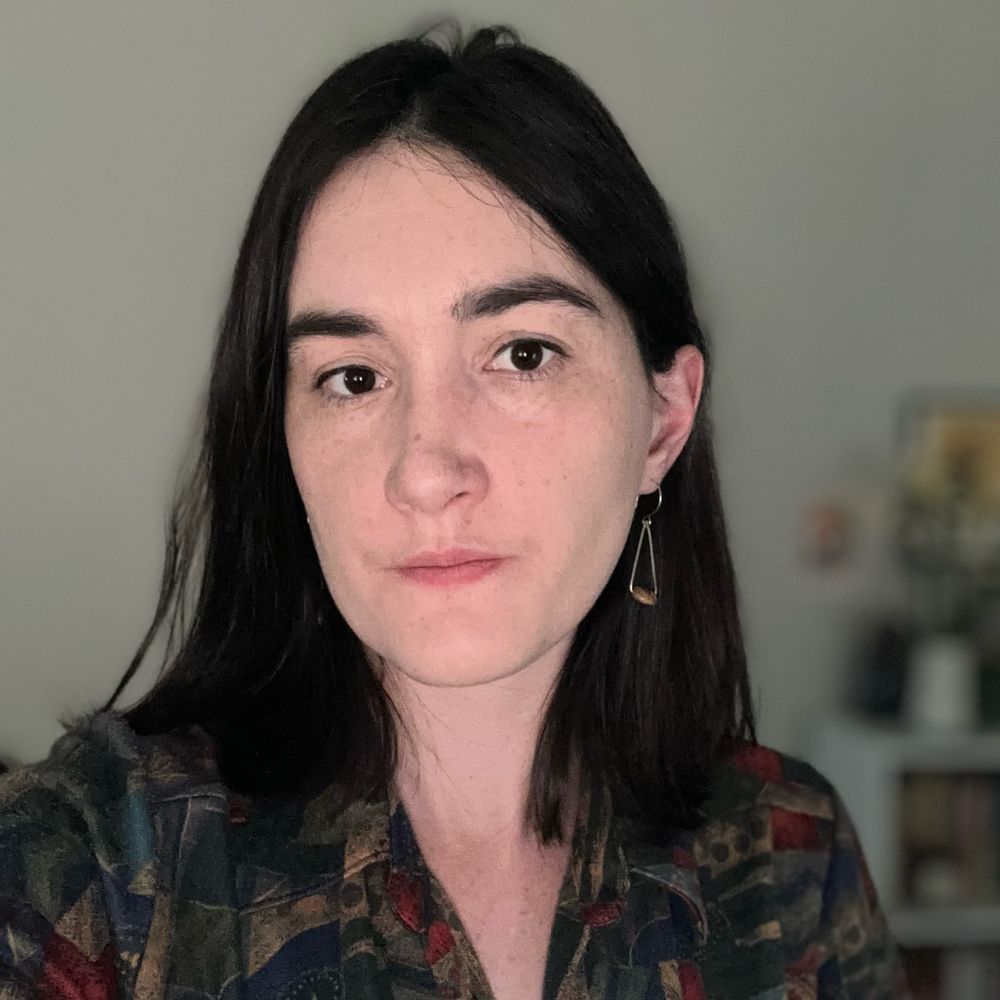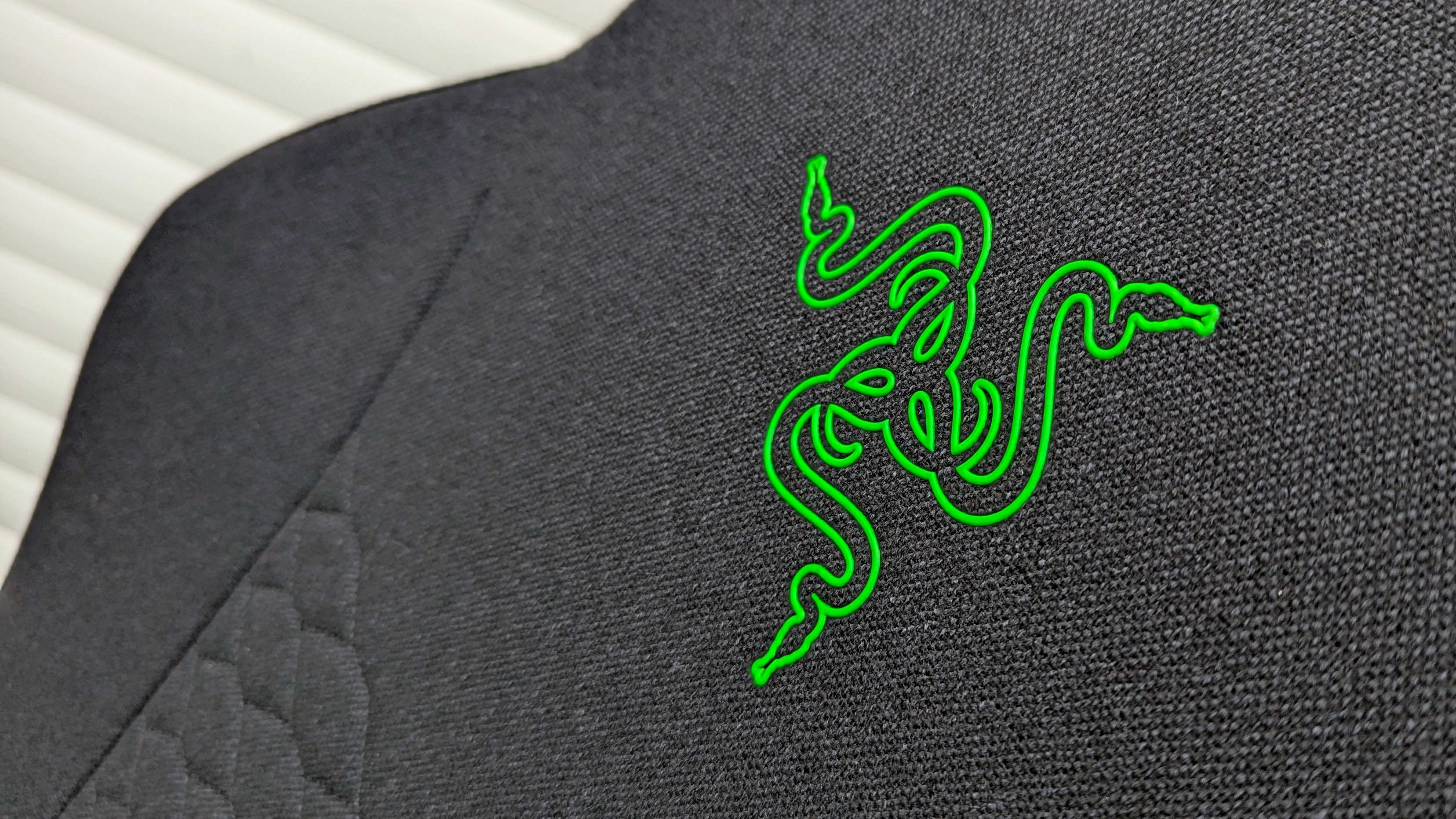The Crush House wanted me to make a steamy reality show, but I got tired of being told to film butts and made a nature documentary instead
The Slow TV fans and the retirees appreciate my art—or fell asleep with their TVs on.
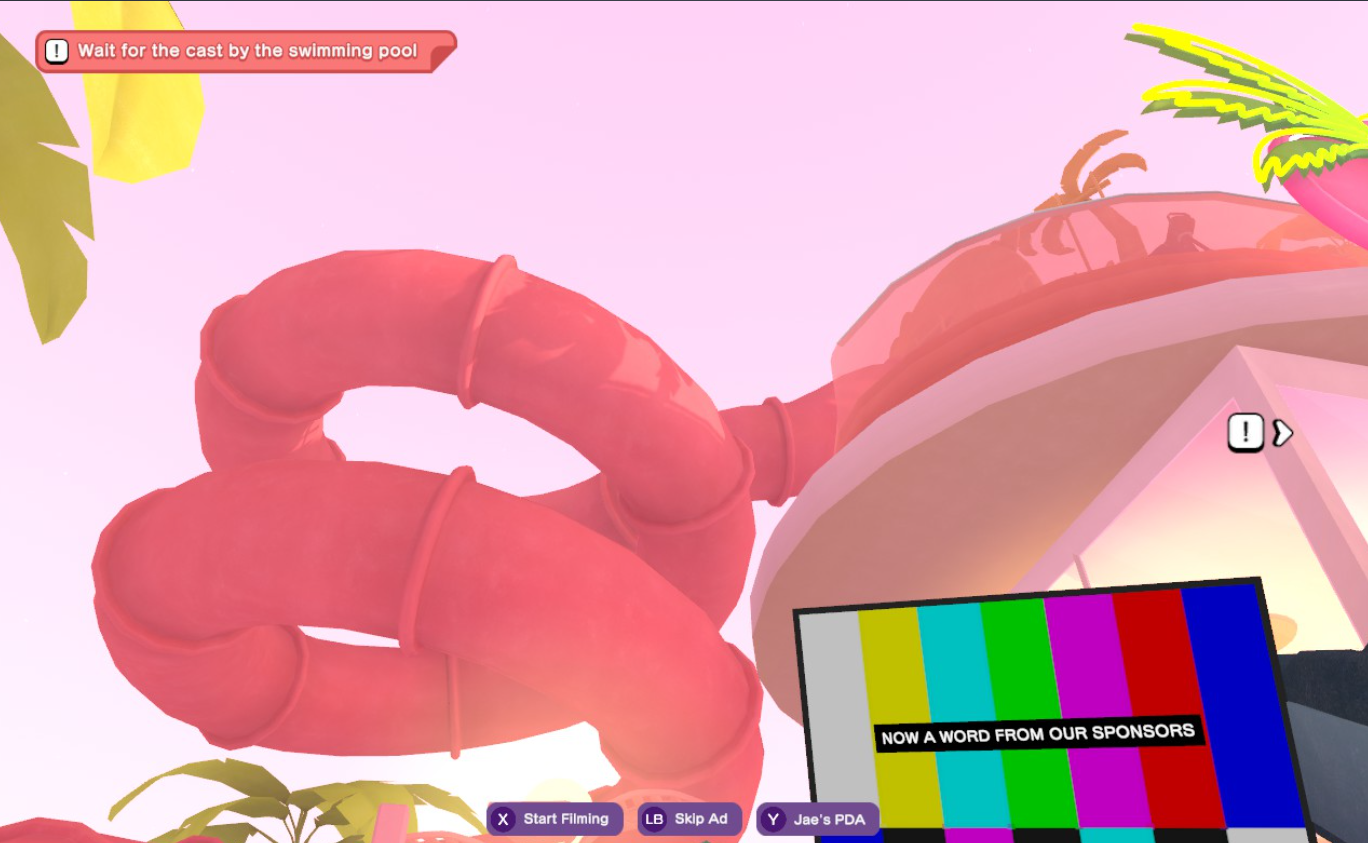
The suburban moms are killing me.
That's what I think as I rush across the set of The Crush House, the reality TV show that I (Jae) am a producer on. The show follows four singles as they live together, fighting and hopefully falling in love over the course of a week in a pink pastel three story home. My job is to be a kind of fairy godmother that keeps the cast happy while giving the fans what they want to see, too, down to granular details.
Today I'm balancing the wishes of three audiences: film students, superfans, and the suburban moms. Which would be fine, except all the moms want to see—all they want to see—are the abs of the male contestants while they're lounging poolside and ripening in the sun.
To make matters worse, one of the contestants cornered me last night while I was wrapping up. Priscilla explained that her mom, a star in Argentina, didn't believe she was beautiful enough to be on TV. So could I film her making out with two people and prove her mom wrong?
Rule number one on The Crush House is don't talk to the cast. But Priscilla is beautiful and young and sad, and surely the cameras aren't on now, right?
The Crush House (the game) asks you to make a dating show in five days with nothing but your camera and the ambient drama of the cast, as a variety of audiences watch live. In that time, the production assistants shepherd you around the massive set, then you spend your day walking around it and filming the four contestants. Their goal is to make it to Friday and race down the "success slide," i.e. to win money and fame at the end of the show. Your goal is to get them there.
I'm a casual reality TV fan, but I've watched almost every season of the dating show Love Is Blind (including the infamously unsuccessful season 5). In fact, I'm watching Love is Blind UK as it airs right now. That means I've also read this article about Love is Blind's attempts to rehabilitate after cast members revealed producer coercion, lack of food, and most especially inaction around abuse allegations. Showrunners have responded with shots of overflowing tables and interviews where the contestants share how good they feel they have it, which comes across as being more for the audience's benefit than anyone on the show.
Keep up to date with the most important stories and the best deals, as picked by the PC Gamer team.
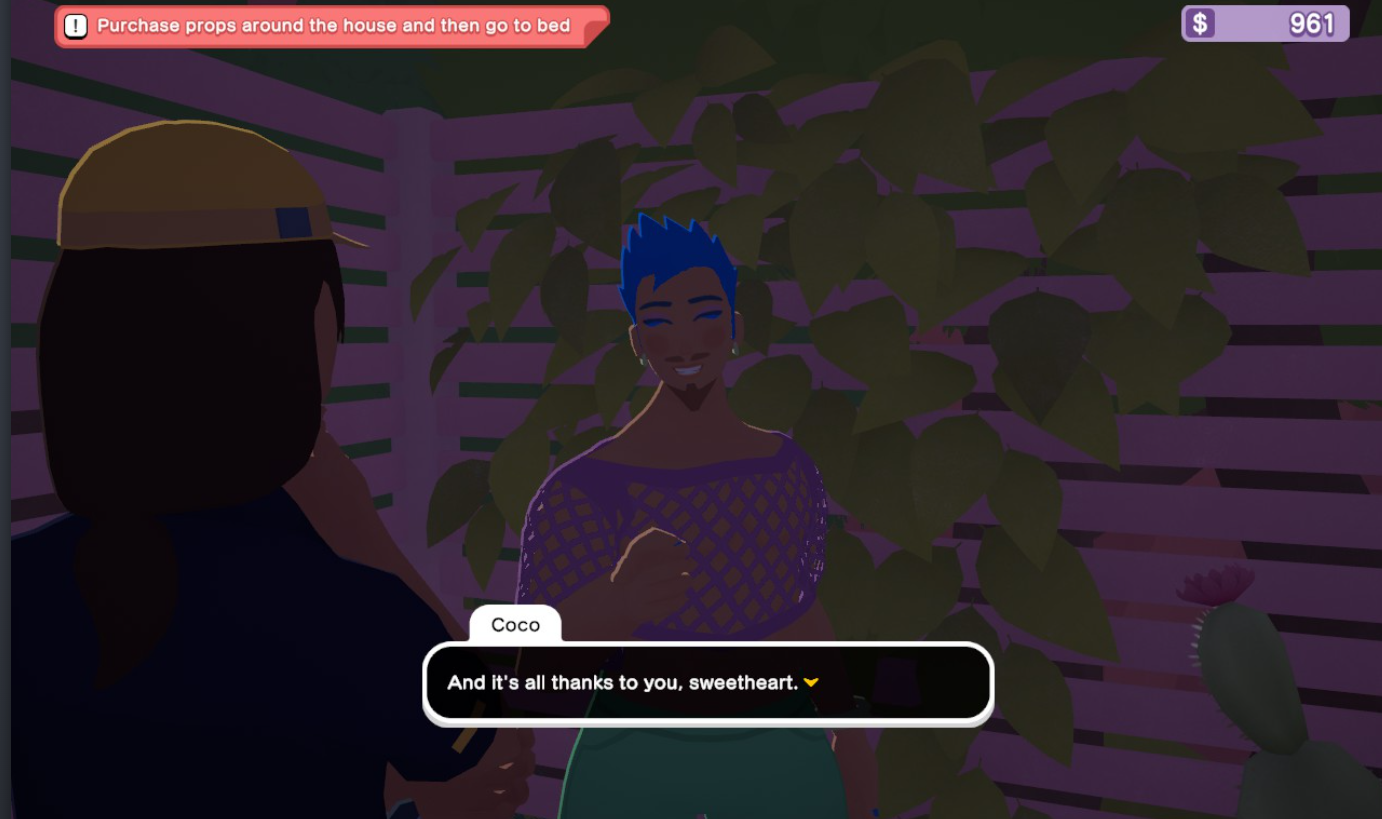
The Crush House is a little more like another reality dating show, Love Island, where the couples live together and can actually see their dates (and wear a similar amount of neon). But it feels like The Crush House's creators have noticed the privacy and consent issues that have followed both shows. And it confronts you with said issues flat out. I say this because on Day 4 in the house I'm introduced to the suburban moms' dark twin: the Butt Guys. I'm sure you can imagine what they want you to focus on.
And this is the point where I break: I don't want to film anyone's ass. It feels gross, and at the same time I'm struggling to keep up with the network's demands as it is. The Crush House gives you ducking, running, and strafing abilities and you'll need all of them if you want to catch the cast's private moments. But I find myself missing them most of the time. I always arrive just when the conversation ends, enjoying the tasty dialogue myself but just giving the audience another cereal commercial.
It turns out I'm bad at trying to create the world's best TV show. So, I stop trying.
Instead, I decide to film the way I want, at my own pace. If that means pivoting to focus on the houseplants or the real estate, so be it. Also, like my audiences, I've already started to feel parasocially attached to my cast. I want them to like me, not feel like I'm trapping them in their golden prison.
The first thing I want to know is simple: can I get through the current day and achieve high enough ratings without (intentionally) filming anyone's butt? The answer, it turns out, is no: I just can't get the points I need to keep my job without giving the audience what they want. My next step is turning the game to casual mode, where even if you meet no audience thresholds the show won't get canceled.
Even though I can't lose, the audience feedback is brutal. People think the show is boring, or (when I am able to film the characters in time) that there were too many fights. So I give up on satisfying anyone, not just the Butt Guys. Instead, I only guide the camera where I want to, which is usually the garden or the pool deck, and film whatever crosses my path. I start making what one audience describes as a "nature documentary" (derogatory): mostly water, plants, and occasional distant arguing.
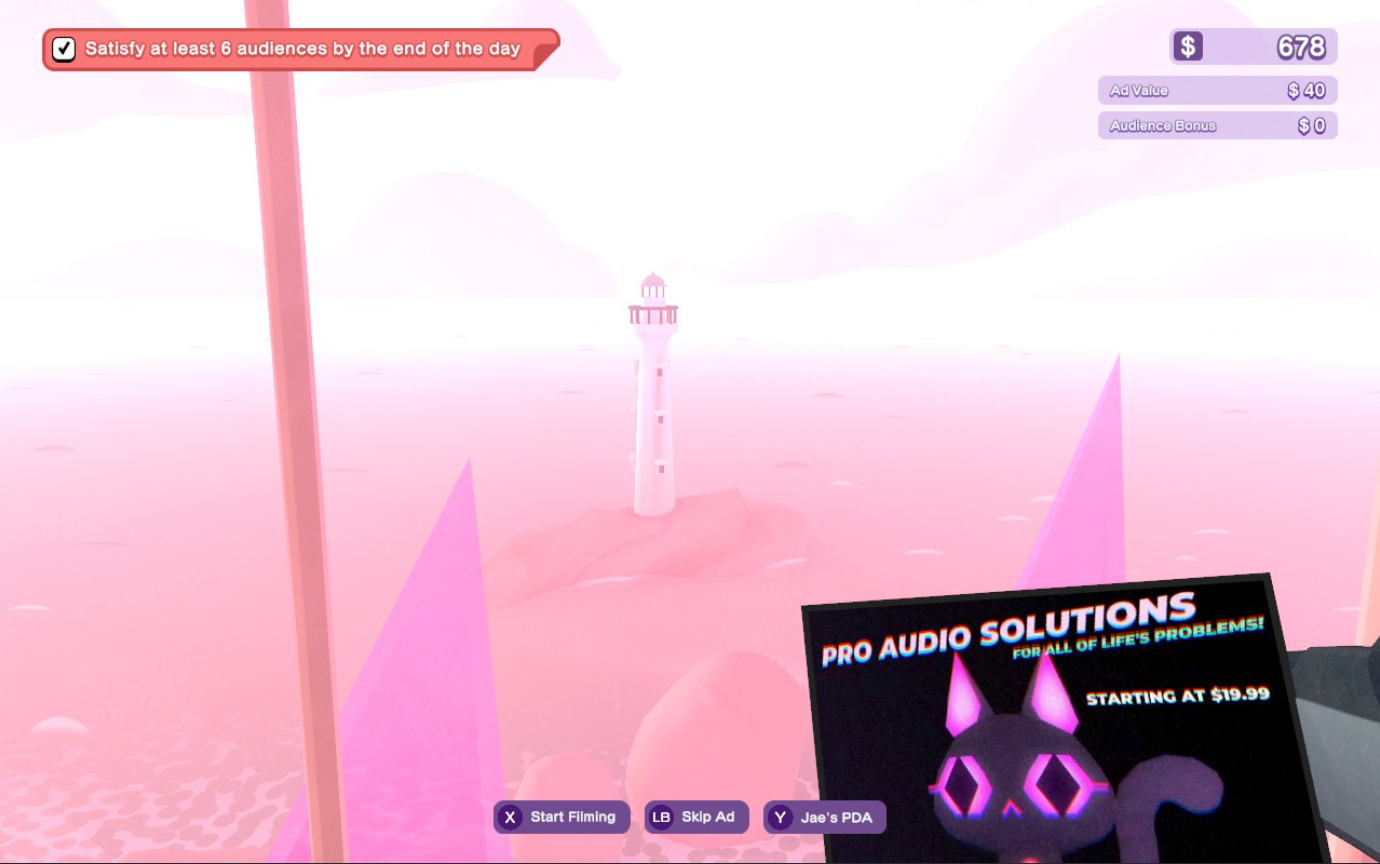
But it turns out that some of the audiences actually like my style. The slow TV fans, for example, and also the retirees (who, the joke is, can't figure out how to turn off their TV). The lighthouse fans like me whenever I'm filming in the direction of the lighthouse that's outside the main glass window. So for one day I become a lighthouse documentarian, missing out on all the drama in the house in the process.
At one point in season 3 I take my experimenting to another level when I miss the cast's walk-in, the introduction to the show. Instead I wander through the empty house with the camera on, filming the same pink furniture I'd seen several times before. A few of the cast's intro lines, which I've heard before, too, filter through a door. "I wonder what Alex thinks of the rest of the cast?" asks one viewer, an interesting question given that there is no Alex—there's no one at all—in the camera frame.
I find that when I stop trying to film the action I appreciate the darker undertones of the story. As I said, The Crush House knows how the sausage is made in reality TV: When I step back from the drama I really feel the wrongness of the house. I notice how the kitchen starts off with no food, and you have to buy it with ad money (otherwise the contestants will drink only Crush Juice). I notice how fast I move when I run; in fact, the controls really remind me of Portal, as does the basement decor that hints at something sinister going on. Why do I run this fast, anyway?
By mid-season 3 my approach has become totally untethered from the game's intentions. Every morning I get up and walk around the house while filming the whole time, not stopping for ads. That means I make no money, and so I can't buy props anymore. On the flip side, this becomes relaxing. When I stumble on conversations they're usually nonsensical, because I missed whatever inciting incident made them occur (like an appearance-based insult or someone hogging the bathroom). I see characters zoning out by the pool for hours without talking to anyone. I don't know if they chose this themselves, or the game has somehow intuited that I find stillness more interesting than movement.
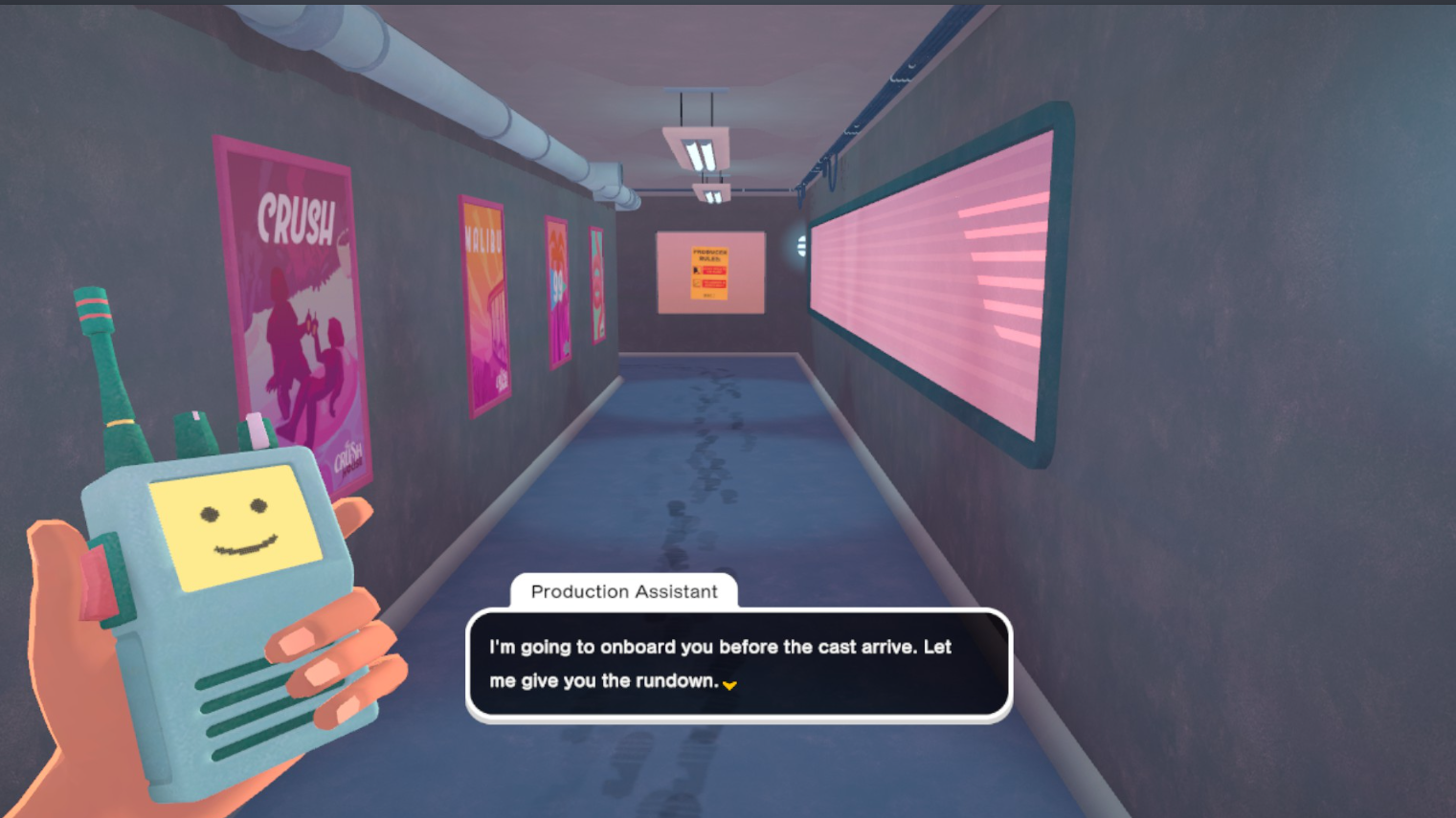
Although I'm not making must-see TV, some members of the audience are still into it. The film students like me now, probably because I end up locked on to sculptures for long moments at a time. I have my own walking around routine even though I don't have an imposed one anymore. I also still have the "film Priscilla making out with two people" quest, a mean feat since she's "ENEMIES" with almost everyone in the House right now. But then I think: am I even going to be helping Priscilla if I humor her, or will I just be trapping her in a cycle of reality TV hell? Wouldn't it be nicer—ultimately, better—of me to just stop filming her completely?
Something I knew when I watched reality TV, but didn't fully appreciate until I played The Crush House, was how much a reality show is just a collection of choices. Even when I removed myself from the pressure of manufacturing events, I still wanted to play God with the cast, who were (via my documentary style) being removed from the spotlight they asked for. Although the game let me film whatever I wanted, I couldn't break out from this mindset: like my audiences, I made the mistake of thinking I knew what other people needed better than they knew themselves. Whether you lean into or away from audience satisfaction, in other words, The Crush House will catch you acting like a real-life producer.
At the end of season 3, while the cast make their goodbye speeches atop the success slide, I instead film the inside of the slide itself. It's round like a playground slide but fleshy and umbilical, unpleasantly pink. Diya, a nerdy contestant, pushes past after her speech is done and the slide swallows her whole. I let the camera linger on it until all the contestants have left, then the feed breaks off and no one is watching anymore. I film for a minute longer. Then I go down the slide too, ready to make Season 4 even more avant-garde.
Emily Price is a freelance writer and columnist at Unwinnable Magazine. She is also a medievalist and has read the Canterbury Tales at least once. Her favorite genres are RPGs, visual novels, and any game with customizable furniture.
